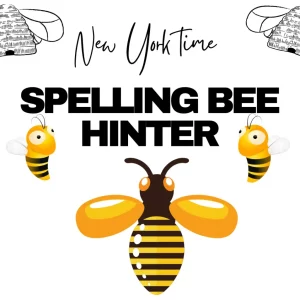Spelling bees, those venerable tests of linguistic prowess, have long been celebrated as showcases of intellect and vocabulary mastery. Yet, beneath the surface of these esteemed competitions, a swarm of controversies and debates buzzes persistently. From the origins of words to the fairness of the competition, and even the perceived difficulty levels, spelling bees have been embroiled in a myriad of contentious discussions.
Evolution of Words and Their Origins
One of the most intriguing aspects of spelling bees is the etymological journey of words. The English language, a tapestry woven from various linguistic roots, encompasses words derived from diverse languages like Latin, Greek, French, and more. This linguistic tapestry often results in words with complex orthography, creating hurdles for spellers and leading to debates about their origins. Controversies arise when the etymology of a word becomes a focal point in a spelling bee. Words originating from languages with different phonetic systems or non-linear spelling patterns can pose significant challenges. For instance, words like “knaidel” in 2013’s Scripps National Spelling Bee stirred debate due to its Yiddish origin and inconsistent transliteration from its original language. Questions emerged about whether the spelling provided truly reflected the word’s pronunciation or if it unfairly favored those familiar with its linguistic roots.
The Perceived Difficulty Levels
The perceived difficulty of words used in spelling bees often garners attention and raises questions about fairness. Some critics argue that the words selected for competitions might lean heavily towards esoteric, less commonly used vocabulary, creating an uneven playing field. The contention arises when these words seem detached from everyday language or practical usage. Advocates of challenging words assert that spelling bees are meant to test the boundaries of a speller’s knowledge and should include words that push participants beyond commonplace vocabulary. However, the balance between challenging the participants and ensuring fairness often becomes a matter of intense debate. Critics argue that the emphasis on obscure words might detract from the educational value of the competition, promoting rote memorization over a genuine understanding of language.

Fairness in Competition
Ensuring fairness in spelling bees remains a persistent concern. The process of word selection and the diversity of words included in competitions are hotly debated topics. Critics highlight disparities in the difficulty level of words presented to contestants, raising questions about whether all participants face an equal challenge. Moreover, regional variations in vocabulary usage pose challenges. Words that might be familiar to some contestants due to regional linguistic differences might appear considerably more difficult for others. This leads to discussions about the inclusivity of the competition and whether it truly provides an equitable platform for all participants.
The Role of Technology and Resources
Advancements in technology and the availability of resources have also stirred controversy in spelling bees. Some argue that the prevalence of online dictionaries and study aids has altered the nature of preparation. Critics suggest that this reliance on resources might overshadow the emphasis on organic learning and genuine linguistic comprehension. Furthermore, the accessibility of study materials and coaching resources varies widely, creating disparities among contestants. While some participants have access to comprehensive study guides and specialized coaching, others might lack the same resources, impacting their preparedness and creating an imbalance in the competition.
Striving for Balance
Navigating the controversies surrounding spelling bees requires a delicate balance between challenging participants and ensuring fairness. Addressing these controversies involves a multifaceted approach:
Transparency in Word Selection: Clear guidelines and transparency in the process of word selection can alleviate concerns about fairness. Establishing criteria for word inclusion that balances complexity and practicality is crucial.
Educational Focus: Emphasizing the educational aspect over rote memorization can enhance the value of spelling bees. Encouraging participants to understand word origins, meanings, and usage promotes a deeper connection with language.
Diversity and Inclusivity: Efforts to diversify the pool of words, considering regional variations and inclusivity, can level the playing field and provide an equitable platform for all participants.

Conclusion
Spelling bees, despite their controversies, continue to captivate audiences and serve as a testament to the power of language. While debates persist regarding word origins, difficulty levels, and fairness, the enduring appeal of these competitions lies in celebrating language diversity and the pursuit of linguistic excellence. As the buzz of controversies persists, evolving approaches and a commitment to balance can ensure that spelling bees remain both challenging and fair, fostering a deeper appreciation for the beauty of words.




